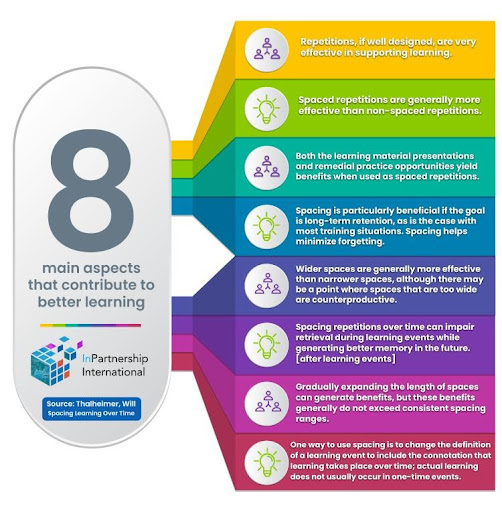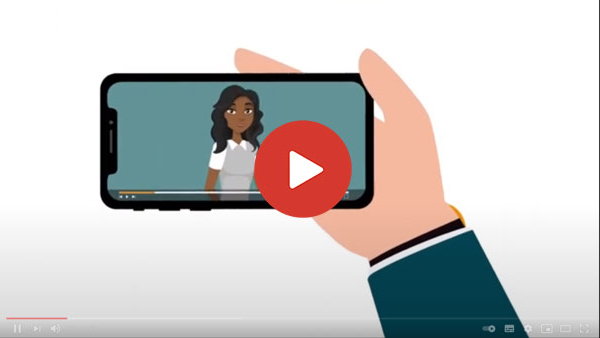| SHARE THIS ARTICLE ON SOCIAL |
| Marketing Insights - | Reading Time: 4.5mins |
Fundamental foundations for learning
...
At some point in our evolution as a species, human beings began to perceive that contexts and interactions were offering us a formative experience in our daily and labourious task to survive;
this experience accumulated and over time became a valuable source of information potentially capable of being transmitted to others in the form of knowledge. For knowledge to emerge and the ability to transmit it, it was necessary for our psychic disposition to be flooded with a temporal vision of space. Thus, under the notion of past and future, a present reality was being configured whose knowledge was necessary to explain and transmit. What other human beings said and did in certain contexts and experiences of the present could be systematised to be modified in the future, in its physical elements and in the same behaviour of other individuals
The learning of the accumulated experience, supposed the existence of a person who faced a changing environment with the experience of others who had already gone through that reality and had inherited this skill represented in the synthesis of everything that had been lived, and therefore learned up to that point. The life experiences of the oldest ones began to be decisive to face the new situations of the youngest and inexperienced. It will then be that uncertain expectation, that overwhelming uncertainty about the future, the first and main object of the reason of knowledge and its transmission and learning mechanisms, becoming the backbone of the meaning and foundation of knowledge and learning of 50 thousand years of human history to the present.
Over time, and the sophistication that was produced as knowledge became more complex (that is, as language produced culture, civilisations, laws, technologies, and social systems), so did learning theory. 100 years ago it was said that knowledge came with blood, and it was a frequent practice to punish or treat students harshly in the classroom. Winston Churchill tells in his memoirs that there was not a week where a teacher did not attack him in front of all the students at the Headmaster’s House of Harrow School. He attended his initial years here; until his father withdrew him outraged by the excessive beatings, he received in public to exemplify to other students the importance of discipline in learning. Today, we know that desirability can also influence learning and talent is not driven by blows and cohesiveness.
People tend to spend more time thinking about the things that matter to them. The more attention we pay to the topics that attract us, the more knowledge and skill about their management and forecasting will be enriched. We tend to avoid ideas and things that we don’t like. The more pleasant our learning concepts are (to think or work), the more time we will dedicate to them and the more passion we will impress on the paths travelled.
Another substantive change in the history of learning in the last 100 years has been that teachers and training facilitators are also understood as students; which implies, precisely, that their position as facilitator is the only difference from students. For this reason, more a student meets with a trainer, the more they can come to respect and admire that person if the later manages to empathise with their psychic dimensions. And this feeling can lead students to engage on a deeper level with the learning materials; which is fundamental when facing the wave of transformation that technology and distance education are assuming today.
 |
Will Thalheimer, in his extraordinary text: Spacing Learning Over Time, mentions 8 main aspects that contribute to better learning:
Presented in the infographic:
- Repetitions, if well designed, are very effective in supporting learning.
- Spaced repetitions are generally more effective than non-spaced repetitions.
- Both the learning material presentations and remedial practice opportunities yield benefits when used as spaced repetitions.
- Spacing is particularly beneficial if the goal is long-term retention, as is the case with most training situations. Spacing helps minimise forgetting.
- Wider spaces are generally more effective than narrower spaces, although there may be a point where spaces that are too wide are counterproductive. A good heuristic is to aim for the length of the spacing interval to equal the retention interval.
- Spacing repetitions over time can impair retrieval during learning events while generating better memory in the future (after learning events).
- Gradually expanding the length of spaces can generate benefits, but these benefits generally do not exceed consistent spacing ranges.
- One way to use spacing is to change the definition of a learning event to include the connotation that learning takes place over time; actual learning is not a one-time event.
In present day world, the learning modules are constantly evolving to futuristic digital modes wherein real time interactivity is available through video conferencing. Current pandemic has only helped these technology solutions advance more into daily lives of humans. Knowledge imparting companies are on a quest to find ways to keep learners actively involved, engaged and focused on the practical learning. You never know in near future you may be learning with a 3D holographic teachers with content delivered from remote locations. To contribute our bit to this humongous learning ocean we have devised highly engaging content in the form of learning pathways and curriculum that is specifically designed for professionals from global financial services and insurance sectors to boost their professional performance productivity.
We will be back soon with another insightful article on Bancassurance. Until then stay safe.
If you found this article helpful and informative, please feel free to share it with your associates.
| SHARE THIS ARTICLE |
Article Author
 Hernan Poblete |
Find out more
Whether you’re an individual looking for a training course to upgrade your skills or a company in need of an in-depth consultancy to identify corporate pain points, iPi can help. Add your details below and iPi will make contact to discuss your requirements.
AA
CPD certified leadership and management courses
Upgrade your leadership and management knowledge by taking one of our interactive on-line courses.
Business management courses are a great way of refreshing the key skills you need to effectively manage teams. Receive professional recognition after completing the course.
CPD Certified Leadership and Management Courses

















